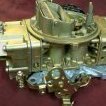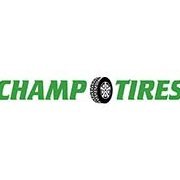Marking up parts
-
Available Subscriptions
-
Have you checked out Joe's Latest Blog?
-
By Joe Marconi in Joe's Blog0 commentsIt always amazes me when I hear about a technician who quits one repair shop to go work at another shop for less money. I know you have heard of this too, and you’ve probably asked yourself, “Can this be true? And Why?” The answer rests within the culture of the company. More specifically, the boss, manager, or a toxic work environment literally pushed the technician out the door.
While money and benefits tend to attract people to a company, it won’t keep them there. When a technician begins to look over the fence for greener grass, that is usually a sign that something is wrong within the workplace. It also means that his or her heart is probably already gone. If the issue is not resolved, no amount of money will keep that technician for the long term. The heart is always the first to leave. The last thing that leaves is the technician’s toolbox.
Shop owners: Focus more on employee retention than acquisition. This is not to say that you should not be constantly recruiting. You should. What it does means is that once you hire someone, your job isn’t over, that’s when it begins. Get to know your technicians. Build strong relationships. Have frequent one-on-ones. Engage in meaningful conversation. Find what truly motivates your technicians. You may be surprised that while money is a motivator, it’s usually not the prime motivator.
One last thing; the cost of technician turnover can be financially devastating. It also affects shop morale. Do all you can to create a workplace where technicians feel they are respected, recognized, and know that their work contributes to the overall success of the company. This will lead to improved morale and team spirit. Remember, when you see a technician’s toolbox rolling out of the bay on its way to another shop, the heart was most likely gone long before that.
-
-
Similar Topics
-
By champtires
Premium Member Content
This content is hidden to guests, one of the benefits of a paid membership. Please login or register to view this content.
-
By Joe Marconi
Premium Member Content
This content is hidden to guests, one of the benefits of a paid membership. Please login or register to view this content.
-
By DUFRESNES
Premium Member Content
This content is hidden to guests, one of the benefits of a paid membership. Please login or register to view this content.
-
-
By carmcapriotto
Thank You To Our Partners The Institute, AutoFlow, AutoLeap, Shop Dog Marketing, In-Bound:
Craig O’Neill, welcomes his friend and communications expert, David Boyd, as our guest. Listen up to hear the thoughtful conversation between David and Craig across a variety of topics and questions related to the phones skills of your staff, AI use in the world today, and the outlook for the future.
A key question: “Will the job of the service advisor still exist?”
As AI solutions seem to become more and more sophisticated - the question has career advisors wondering this aloud.
The conversation should be encouraging for anyone who takes their professional role as a service advisor seriously, and the future, according to David and Craig, appears bright.
According to David, the service advisor is the person we should be empowering further, and developing, as this is the role focused on building relationships.
The conversation draws on additional points related to what we learned during Covid and the real value of actual connection, as well as some of the pitfalls for what occurs when a productive technician is forced to answer phone calls.
Listeners will walk away with some practical advice from this episode, and more clear vision for a coachable front counter that is focused on connecting!
The WOTD Today:
Affable
Noun-
Friendly - good natured - easy to talk to
Thank You To Our Partners The Institute, AutoFlow, AutoLeap, Shop Dog Marketing, In-Bound:
The Institute at WeAreTheInstitute.com. "Stop stressing over your business, you deserve a good night's sleep. The Institute’s coaching helps you achieve success and financial peace.
AutoFlow at AutoFlow.com. Your partner in technology, Autoflow consolidates your client interactions - before, during and after the visit to a single thread. Learn more at Autoflow.com
AutoLeap at AutoLeap.com. Are you tired of juggling multiple tools to manage your auto repair shop? Say hello to the streamlined efficiency of AutoLeap, the #1 all-in-one Auto Repair Shop Management Software!
Shop Dog Marketing at Shop Dog Marketing.com. "Want to see your auto repair shop thrive? Let Shop Dog Marketing be your guide. Our customer-first approach, combined with AI-driven creative content, ensures top rankings.
In-Bound at CallInBound.com. Cover your communication needs and revolutionize your auto repair business with AI-driven call analytics from InBound.
Contact Information
Email Craig O'Neill: [email protected] Watch Full Video Episode Join Our Virtual Toastmasters Club: https://remarkableresults.biz/toastmasters
The Aftermarket Radio Network: https://aftermarketradionetwork.com/
Remarkable Results Radio Podcast with Carm Capriotto: Advancing the Aftermarket by Facilitating Wisdom Through Story Telling and Open Discussion. https://remarkableresults.biz/
Diagnosing the Aftermarket A to Z with Matt Fanslow: From Diagnostics to Metallica and Mental Health, Matt Fanslow is Lifting the Hood on Life. https://mattfanslow.captivate.fm/
Business by the Numbers with Hunt Demarest: Understand the Numbers of Your Business with CPA Hunt Demarest. https://huntdemarest.captivate.fm/
The Auto Repair Marketing Podcast with Kim and Brian Walker: Marketing Experts Brian & Kim Walker Work with Shop Owners to Take it to the Next Level. https://autorepairmarketing.captivate.fm/
The Weekly Blitz with Chris Cotton: Weekly Inspiration with Business Coach Chris Cotton from AutoFix - Auto Shop Coaching. https://chriscotton.captivate.fm/
Click to go to the Podcast on Remarkable Results Radio
-
-
-
Our Sponsors















Recommended Posts
Create an account or sign in to comment
You need to be a member in order to leave a comment
Create an account
Sign up for a new account in our community. It's easy!
Register a new accountSign in
Already have an account? Sign in here.
Sign In Now